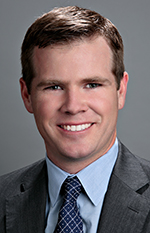Long-term care providers are taking charge of the clinical and economic outcomes of patients
Putting long-term care providers in the driver's seat of the clinical and economic outcomes of patients has meant an increase in the level of care provided in long-term care facilities. With more proactive care on the front lines in nursing homes, hospitalization rates have decreased and the quality of life for residents has been positively impacted.
For more than 30 years, American Health Partners has been operating long term care facilities across the Southeast. In an effort to increase the level of care that could be provided in the nursing home, the company has evolved from its traditional role as a post-acute care provider to a national Medicare Advantage company and partner to post-acute care providers across the country.
"When we saw a clinical need for our long-term care residents that was not being met by traditional insurance, we knew that with the right resources we could provide a higher level of care. We recognized that those on the front lines were in the best position to help determine what resources were needed to provide that care while the ones paying for those resources were dictating what those resources could be and how they could be utilized," said Hank Watson, Chief Development Officer for American Health Plans. "American Health Partners was in a unique position as we had divisions that were on both sides of that equation. This enabled us to design our own plan to address the needs of our residents."
Watson and his team had very few examples to look to for guidance as they developed the program. "To start one of these plans is daunting. It requires significant infrastructure and capital investment. Most nursing homes do not have either of those. And most traditional insurers have no interest in or idea of what it takes to run a nursing home," he said. "We had nursing homes, were licensed through the Department of Insurance and had a contract with the Centers for Medicare and Medicaid Services. So, we were well poised to develop a special needs plan for Medicare, based on the needs we had identified in our facilities."
In 2017, Watson helped American Health Partners expand beyond its provider businesses into Medicare Advantage through a new company - American Health Plans. He has been on the front lines of developing not only the program but also in forming partnerships with long-term care providers to offer the program to their residents across multiple states. American Health Communities, a division of American Health Partners, has 28 facilities in Tennessee, 26 in the program as well as partnerships with ten incremental facilities across the area that offer American Health Advantage of Tennessee to residents and in conversation to bring other nursing home facilities into the program as partners."
"American Health Advantage of Tennessee which launched January 1, 2019, has allowed our facilities and partner facilities to provide a higher level of care that is customized to our residents. Members get access to nurse practitioners and RN case managers who provide incremental care in the nursing home environment," said Watson. "For the majority of our membership there is no additional cost because most patients are dual eligible for Medicare and Medicaid, which means they receive financial assistance with Medicare advantage premiums and cost sharing."
Through the program, care is provided to members 24/7 in the facility by either a nurse practitioner or RN case manager. "Each provider's sole purpose is to provide high quality proactive care for their group. Their practice consists of regular weekly rounds to check on members as well as providing on-call coverage for their panel," said Watson. "Each panel consists of about 60-80 members, so our providers get to know their members very well and can be responsive to their needs."
Through customized care programs and provider-owned Medicare Advantage plans, American Health Plans have reduced unnecessary hospitalizations for patients by transforming the role provider partners play in the overall health of patients. "Under a traditional Medicare plan, if a nursing home resident needs elevated care for something such as a urinary tract infection, they are required to be hospitalized for three days. This process can cause undue stress to a patient who is already frail," said Watson. "In our model, since on the plan and having a nurse practitioner and case manager on site, that three-day hospital stay can be waived because the resources needed to provide the elevated level of care is in the facility."
Strong engagement with facility staff and families in addition to clinical resources have had positive impacts as well. "Nurse practitioner and case managers work with the director of nursing, medical director, pharmacist, therapist as well as member advocates to make sure they are on top of all aspects of a members care," said Watson. "Member advocates are a part of the care team in each facility. Besides checking on members, they make sure members are having good social interactions, especially if a member does not have regular visits from family members. From bringing them balloons on special occasions to just interacting with them on a social level, advocates play an important role in ensuring our residents have as high of a quality of life as possible. These qualitative non-clinical discussions can often identify changes in things such as behavior or demeanor that be an indicator of an underlying health related issue."
Watson says that when the nursing home becomes the payer for its patients, it eliminates the need to depend on other resources to provide the level of care needed for their residents. "Our plans are designed specifically to help nursing home operators enhance patient care and manage financial risk. Sponsoring a health plan through the nursing home can increase patient services, improve health outcomes and generate a reliable, shared revenue stream," he said. "Through shared ownership in Medicare Advantage plans, we help nursing homes control their financial future in a challenging healthcare environment."












